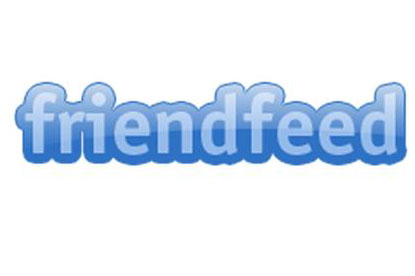
Things I was Wrong About Pt3 – The democratisation of social media
(Remember FriendFeed?)
Following on from QR Codes and The Death of the VLE, I offer the third in my potentially never-ending series of Things I Was Wrong About. This one requires more of a serious face.
In a week when the richest man in the world is using the global communication platform he purchased to undermine the government in the UK, promote the idea of civil war and push right wing ideology, the very idea of democratisation through social media seems naive and ludicrous. But reader, imagine if you can the heady days of 2007-2010. Web 2.0 is in its heyday and we are considering the concept of digital scholarship and how these new approaches will change fundamental academic practices.
I wasn’t alone in witnessing the power of social media to do the following:
- Elevate voices with interesting things to say
- Highlight the value of inout over prestige
- Provide new ways to discuss and critique ideas
- Remove some of the barriers (time, geography, finance) from what could get shared
- Make connections with people in different countries, institutions, disciplines, professions
- Value people for their contribution to the network as a whole
Many of the people I know now as respected scholars and thinkers were people I met through social media, and who, like me I think owe their career in some respects to the types of benefits listed above. So I think this “Thing I Got Wrong” is an example of where I was right, partially, for a while. Of course, we always knew it wasn’t a smell the flowers utopia, but several things happened on the 2010s in particular that saw mild reservations become full blown dystopia. The first of these was the success of social media itself. When it’s just a bunch of nerds talking to each other, no-one cares, but when it’s everyone, then it becomes worth subverting and controlling. This led to the second detrimental development which was the aggressive use of algorithms that could be manipulated to spread misinformation and hatred, and which explicitly encouraged outrage. The last is the consolidation of this power into the hands of dubious individuals with fragile egos, with very little governance and pushback against their power.
All of this seems obvious now. I do wonder how inevitable it all was. Perhaps very, because, hey, capitalism and power. I’m sure lots of people will now declare they always knew it would end this way, but I don’t think that’s true. There were reservations and inklings, but this shift happened fairly quickly. In conclusion, I was over-optimistic about the benefits of social media and insufficiently pessimistic about the downsides. However, if it was right for a little while, and now is wrong, the question remains, can it become a bit more right again? If so, how and where? Anyway for a little while there, we made some excellent cat memes.



4 Comments
Clint Lalonde
Sigh. And I feel mighty complicitous. I spent a lot of time & energy arguing the positive in those heady early days. When I read my 2010 Masters thesis back (Twitter & PLN’s) I can see far too much techno-optimism and far to little analysis of any negatives. Really, the only negative I noted at the time was from people who had too many followers and were trying to manage the scale of it all. If there was a positive that came out of the demise of social media for me it was to become much more sceptical and critical. The end of the innocence.
mweller
Yeah, I wouldn’t be too hard on yourself Clint, it seems obvious in hindsight, but when it was all new we didn’t have a real comparison
Gabi Witthaus
Hi Martin, this really resonated for me, thinking back to those heady early days of Ning and PBWorks in the noughties – everything seemed possible then. I think the Wikipedia community understood the risks a long time before “fake news” and distorted power relations in social media became mainstream concepts. They have built a remarkably rigorous approach to community-based knowledge sharing, which works and gives me hope. It takes effort and work from all parties though, and I think this is the missing element in social media these days – it’s so easy to become a hostage to convenience. I’m also guilty of playing my part in reproducing it…
mweller
Hi Gabi, yes I think that is true – the ease disguised the responsibility that came with everyone becoming a broadcaster